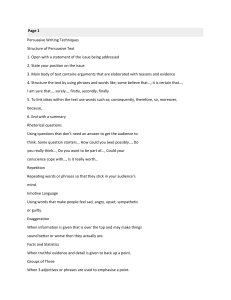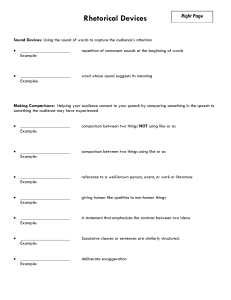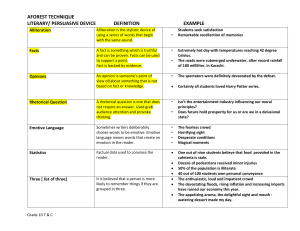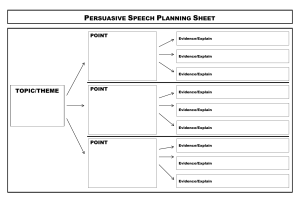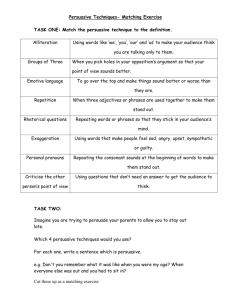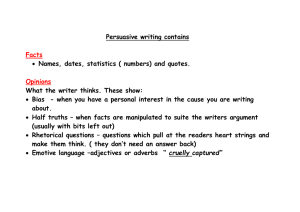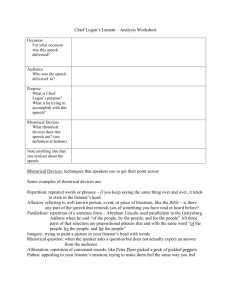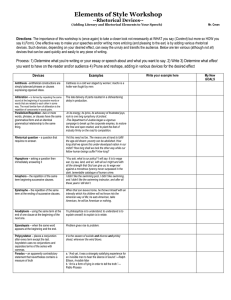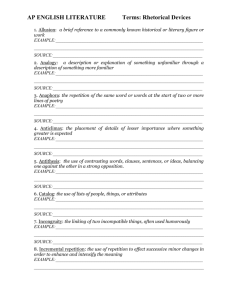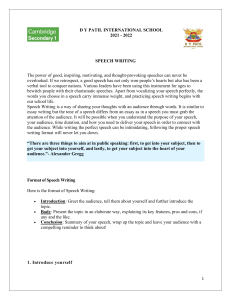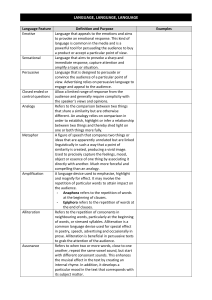Writing to persuade WALT- identify persuasive devices in a text
advertisement
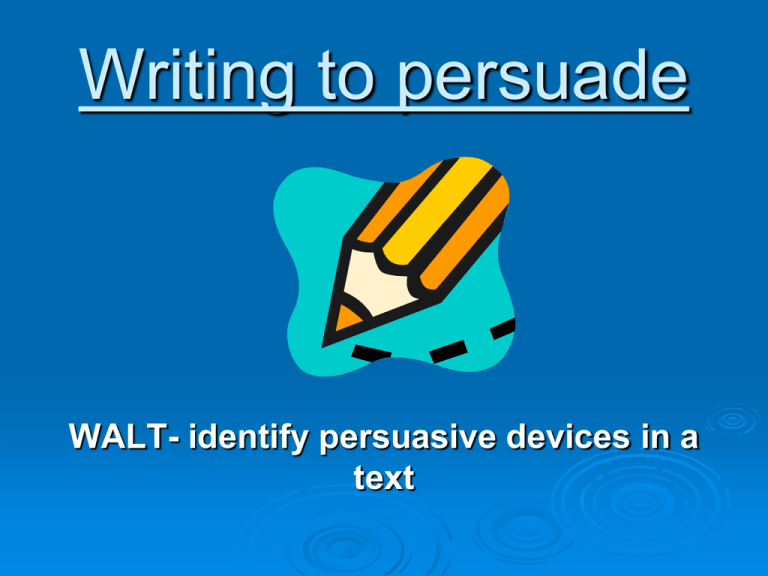
Writing to persuade WALT- identify persuasive devices in a text Personal pronouns Using words like ‘we’, ‘you’, ‘our’ and ‘us’ to make your audience think you are talking only to them. Alliteration Repeating the consonant sounds at the beginning of words to make them stand out. e.g. Eat Yo Yos. They’re yummy in your mouth! Groups of three When three adjectives or phrases are used together to make them stand out. e.g. Homework is boring, dull and uninteresting. Repetition Words or phrases are repeated so that they stick in the reader’s mind. e.g. remember what is was like to be at school; remember how much work you had. Emotive Language When words are used to make the reader feel a certain emotion, like sadness or anger. e.g. We are the poor, helpless children who are forced to do hours and hours of homework every night. Exaggeration When information is given that is over the top, or slightly untrue. e.g. If I get one more piece of homework, I am going to move to the moon! Rhetorical questions Using questions that don’t need an answer to get the audience to think. e.g. Could you live with yourself if you missed out on this opportunity? Facts and Statistics When truthful information is given to back up a point. e.g. 95% of pupils feel that there is too much homework. Summary Personal pronouns Alliteration Groups of three Rhetorical questions Repetition Emotive language Exaggeration Facts and statistics

